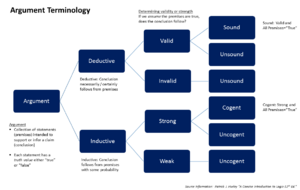Inductive reasoning facts for kids
Induction is a way of thinking where you learn a general rule by looking at many specific examples. Imagine you see many different types of birds, and they all have feathers. From this, you might conclude that "all birds have feathers." This is an example of inductive reasoning. It helps us make educated guesses about the world based on what we've observed.
How Induction Works
Inductive reasoning is one of the main ways we use logic. The other is called deductive reasoning. In induction, we find a general rule by using a large number of particular cases. For example, if you watch water in many different places, you'll notice it always flows downhill. From these observations, you can conclude that "water always flows downhill."
Induction and Science
Induction, which is about collecting facts and observations, is often the starting point for science. For a long time, people observed the sun, moon, and stars moving across the sky. Early civilizations thought this meant these objects revolved around the Earth because that's what it looked like.
However, just observing isn't enough for true science. Scientists like Copernicus and Galileo later developed a different idea called heliocentrism. This new idea suggested that the Earth and other planets actually orbit the Sun. They created a theory that explained all the observations much better. This is what real science does: it tests ideas to find the best explanation, even if it's not the most obvious one.
Another great example is the work of Charles Darwin. He spent many years collecting interesting facts about animals and plants from all over the world. If he had only collected facts, his work might not be famous today. What Darwin did was suggest a way to explain all these facts. He proposed an hypothesis (an educated guess) that could be tested. This idea, the theory of evolution by natural selection, helps us understand how the living world came to be as we see it. So, while collecting facts is important, real science builds on these facts by creating and testing explanations.
Good vs. Bad Induction
Simply collecting facts (induction) is not science by itself. The philosopher David Hume thought that induction means we expect things we haven't experienced to be similar to things we have experienced. Another philosopher, John Stuart Mill, wondered why sometimes just one example is enough to make a general rule, while other times many examples aren't enough.
Philosophers often ask: what makes a good inductive conclusion different from a bad one? A simple way to think about it is: "If all the 'A's we know are 'B', then it's probably true that all 'A's are 'B'." The word "probably" is key, because inductive conclusions are not always 100% certain.
See also
 In Spanish: Razonamiento inductivo para niños
In Spanish: Razonamiento inductivo para niños
 | Mary Eliza Mahoney |
 | Susie King Taylor |
 | Ida Gray |
 | Eliza Ann Grier |


